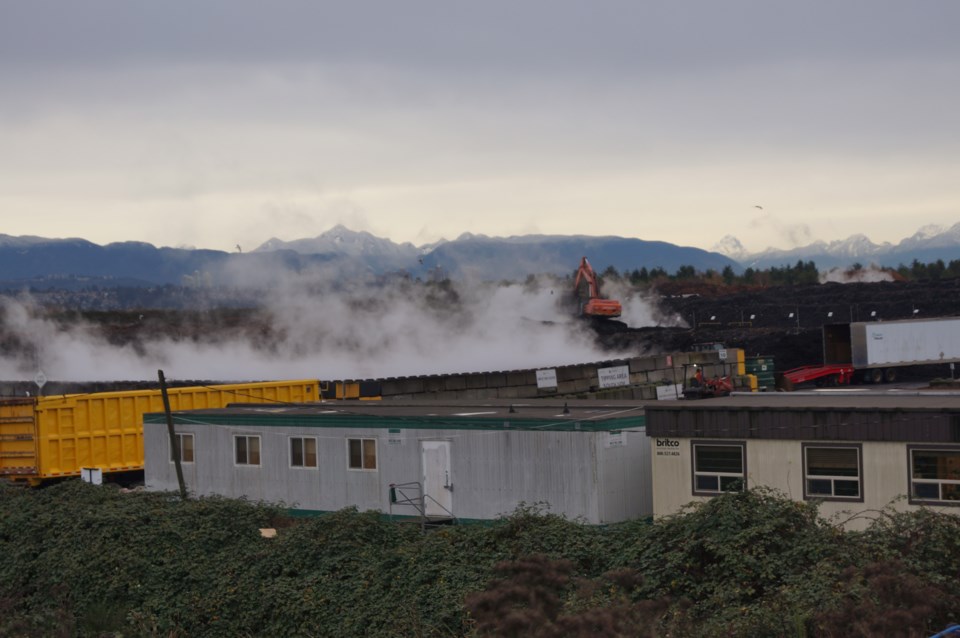A spokesperson for Harvest Power said a cease and desist order filed by Metro Vancouver last week, to halt organic waste deliveries to the company’s compost facility in east Richmond, is evidence that the “sniff test” remains “vague and unscientific.”
Stephen Bryneel said Metro Vancouver’s insistence that Harvest Power had violated the terms of its air quality permit this month is inconsistent with the declining odour complaints and emission improvements the facility has seen in the past two months.
Metro Vancouver deemed Harvest Power to be in violation of the permit, after determining it had caused significant odours on five occasions in the past 14 days, come March 22. As such, it stopped taking organic waste for two days, until last Friday, when there were no longer five attributable violations within a 14-day period (a requirement of the permit).
Metro Vancouver officials used what is called a “sniff test” to determine compost odours had exceeded a five-kilometre boundary, from the facility, which drew thousands of official complaints last year.
Yet, this month shows some of the lowest number of complaints over the past eight months.
Many residents did, however, report odours seemingly attributable to Harvest Power on March 9, 13, 19 and 21, according to social media posts (Public Facebook group Stop the Stink in Richmond).
Harvest Power appealed the cease and desist order in an expedited manner last Thursday, by calling for an end to the sniff test, which relies heavily on the ability of officials to smell and identify odours. It is awaiting a decision from the Environmental Appeal Board, said Bruyneel.
“We had applied for a stay order for the sniff test back in December, and we now asked that it be ruled on, given what was going on,” he said, via email.
Bruyneel said the order caused a “huge disruption” to organic waste haulers in the region. Metro Vancouver relaxed its organic waste tipping fees at its waste stations, and spokesperson Don Bradley said about 250 tonnes of green waste and food scraps was diverted, some to the landfill and the rest to other compost facilities.
Both the City of Richmond and Metro Vancouver maintain the sniff test is valid.
“We believe the sniff test is appropriate, and we’ve pressed Metro Vancouver to use it,” said Mayor Malcolm Brodie.
Meanwhile, Richmond has served Harvest Power with a second notice of default. Brodie said a mediation meeting is scheduled for this week as the deadline for the first notice is approaching.
Richmond has diverted its multi-family home organic waste to Enviro-Smart Organics compost facility in Delta. However, single-family home organic waste is being diverted to another facility during the Harvest Power closure, stated the memo. Legal documents show Richmond is obliged to deliver at least 12,000 tonnes of organic waste, annually.
A legal battle persists as 24 residents have applied to the Environmental Appeal Board, to challenge the new air quality permit and shut down the compost facility for good.
Conversely, Harvest Power argues that provincial regulations do not apply to its facility as it is situated on federal land (Port of Vancouver). The federal government has stated it has no jurisdiction in the matter.



